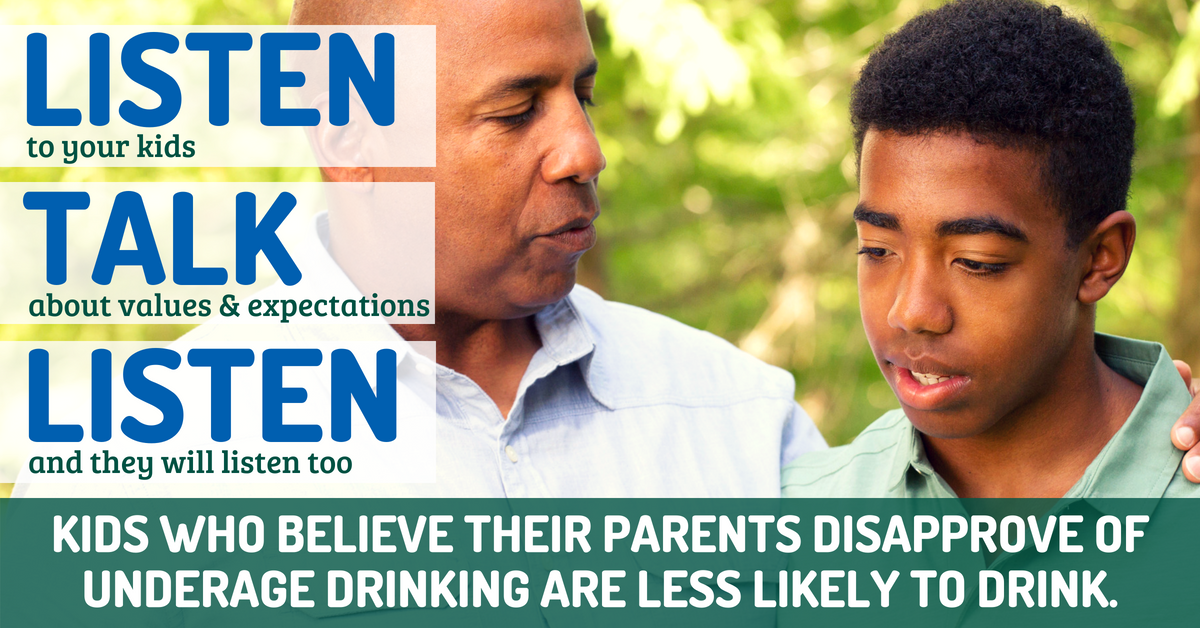Listen • Talk • Listen

Openly communicate with your children. Listen to their concerns. Share why you disapprove of underage drinking and other substance use. Be realistic and understanding about the pressures they are facing. Help youth find risk taking activities that are healthy. Learn more at bit.ly/sapcrisks.
THE TEEN BRAIN IS STILL DEVELOPING
Partnership for Drug-Free Kids says, “Substance use can interrupt and interfere with brain development, which in turn, may adversely impact learning and raise the risks of developing anxiety, depression and substance use disorders into adulthood.”
Learn more about the risks at bit.ly/sapcbrain.
PARENT INFLUENCE MATTERS
According to a national survey on substance use and health, “Three out of four teens say their parents are the leading influence on their decisions about drinking.” Share your concerns, listen to theirs, and help them to understand the benefits of not drinking.
Learn more parenting strategies at bit.ly/sapcparents.
CONVERSATIONS WITH YOUR KIDS CAN BE EASY
Psychology Today notes that “Kids who try alcohol before age 15 are four times more likely to develop alcoholism than those who begin after age 20.” Take advantage of current events, talk early and often, be honest and non-judgemental, share values and expectations.
Learn helpful conversation tips at bit.ly/sapcconversations.
MAKE A DIFFERENCE: A PARENT TOOLKIT
National Institute on Alcohol Abuse and Alcoholism says, “The bottom line is that most young teens don’t yet drink. And parents’ disapproval of youthful alcohol use is the key reason children choose not to drink. So make no mistake: You can make a difference.”
Learn more at bit.ly/sapctoolkit.
You make a difference!
Brought to you by the Watertown, Waltham, Belmont, Brookline Substance Abuse Prevention Collaborative funded by the MA Department of Public Health Bureau of Substance Addiction Services.
Help spread the word. Download this printable one-pager to share with others:
Listen-Talk-Listen-Watertown.pdf

